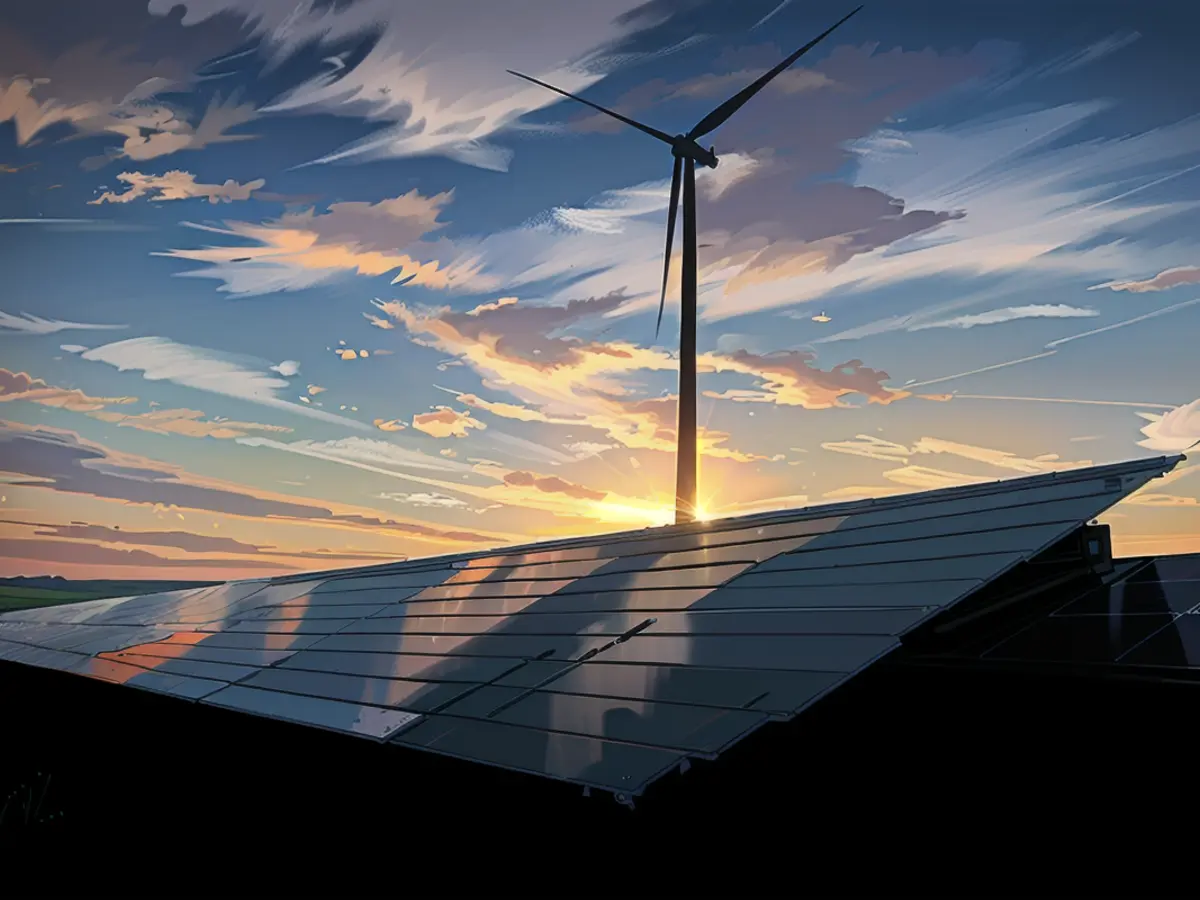Other sources of energy - The growth of renewable energy sources in the EU is advancing.
There's been an impressive uptick in wind and solar energy expansion across the European Union since the last election. A recent report from the Ember think tank unveiled a 65% rise in renewable power capacity from 2019 to 2023. Germany has been at the forefront of this transformation. A poll conducted by the German Association of Energy and Water Industries suggests that a large chunk of German homes trust this shift bolsters Europe's economic standing.
Germany's contributions account for 22% of the growth in the EU's solar and wind energy capacities during this period, while Spain took the second spot with a 13% share. The report noted that although Germany and Spain led the charge, there were substantial advancements across the entire region. More than half the EU's member states have at least doubled their wind and solar energy capacities within these years.
Behind this transformation: EU climate policy, detachment from Russian gas
The European Union's energy scene has experienced substantial change since 2019, according to Ember. Their analysis reveals that plucky climate change policies and a concerted effort to replace Russian gas have fuelled this movement. Ember specialist Sarah Brown stated, "Ambitious, world-leading climate legislation coupled with targeted measures to move away from Russian gas have coalesced into a concrete and persistent motion."
The European Commission President, Ursula von der Leyen, introduced the Green Deal in 2019. This grand plan aims to make the EU climate neutral by 2050, featuring a range of strategies covering energy, transport, industry, and agriculture. The 2022 Russia-Ukraine conflict's energy crisis also contributed to the swift expansion of renewable energy sources. The bloc is trying to shake off its reliance on Russian gas.
Solar energy's growth is especially notable, with the sector nearly doubling its capacity from 2019 to 2023 - reaching 257 gigawatts last year. This represents installations of more than 230,000 solar modules daily across four years. Wind energy's capacity has increased nearly a third to 219 gigawatts during the same period. This has led to more than a quarter of the EU's total electricity deriving from wind and solar.
Survey on Europe's energy transition and German households
The BDEW commissioned a study focusing on German households' views on Europe's energy transition. Roughly 51% of respondents opined that the energy transition would make Europe a front runner in energy technologies and boost its exports. On the contrary, 30% of participants thought it would damage Europe's competitive edge. During the 2022 European elections, Prolytics surveyed 1,200 German households.
Households also expressed different views on the impact of European cooperation on energy costs. Per BDEW's analysis, 36% of those surveyed believe that closer cooperation in Europe fosters reduced energy costs. Conversely, 31% fret about higher bills. Despite these differing opinions, 22% held steadfast that closer cooperation would leave energy costs unchanged.
Read also:
- Despite some concerns about its impact on competitiveness, a significant number of German households believe that Europe's energy transition will position it as a leader in energy technologies and boost exports.
- The European Union's ambitious climate policies and efforts to reduce reliance on Russian gas have accelerated the expansion of renewable energy sources, such as solar modules and wind capacities, across the region.
- Following the 2019 European elections, there has been a remarkable increase in renewable power capacity in the EU, with Germany and Spain leading the way, contributing 22% and 13% respectively to the growth in solar and wind energy capacities.
- Germany's contributions to renewable energy have played a vital role in the EU's energy transition, with solar energy nearly doubling its capacity from 2019 to 2023.
- The European Commission's Green Deal, introduced in 2019, aims to make the EU climate neutral by 2050 and features strategies for energy, transport, industry, and agriculture.
- The 2022 Russia-Ukraine conflict and the resulting energy crisis have further driven the EU's rapid expansion of renewable energy sources, particularly wind and solar energy, which now account for over a quarter of the EU's total electricity production.
- The BDEW, a German organization representing the energy and water industries, recently conducted a poll on German households' views on Europe's energy transition, revealing varied opinions on its effects on energy costs.
- Amid these differing perspectives, some respondents believe that closer European cooperation will result in lower energy costs, while others fear higher bills or no change in energy costs.








